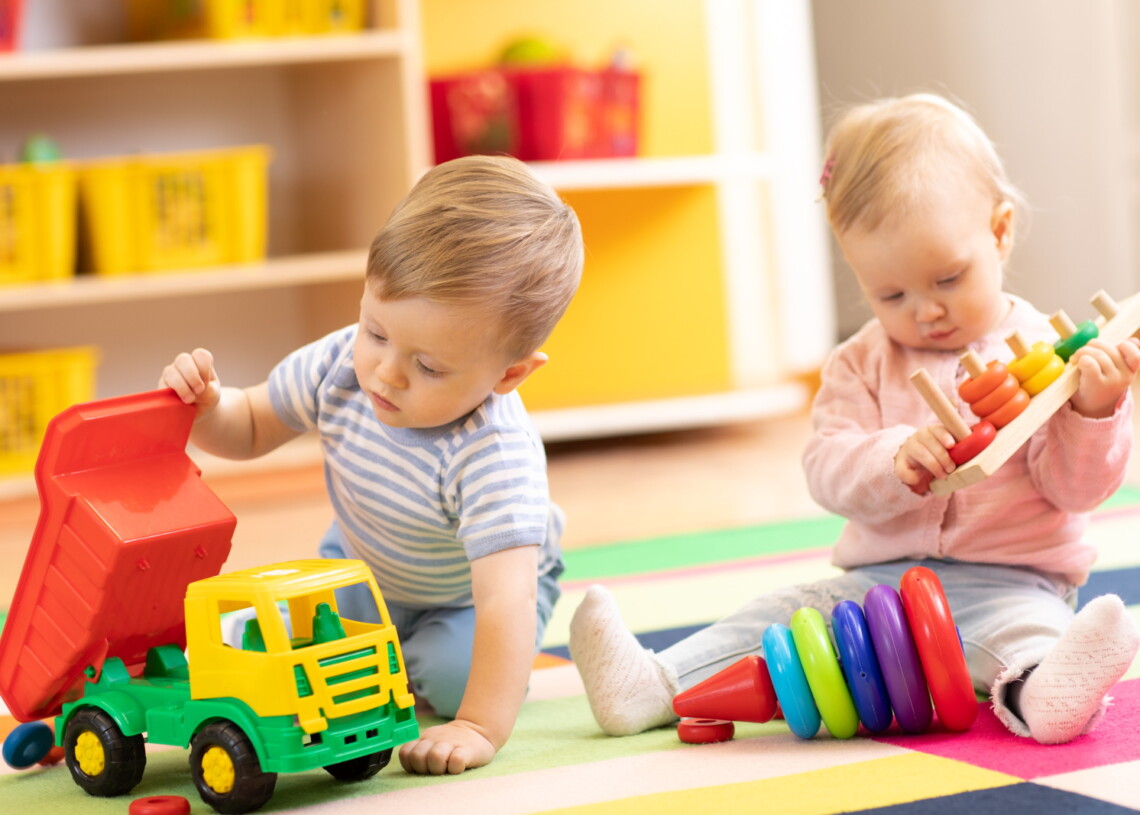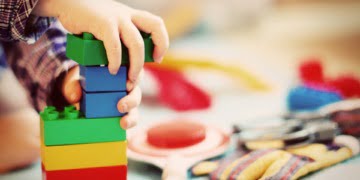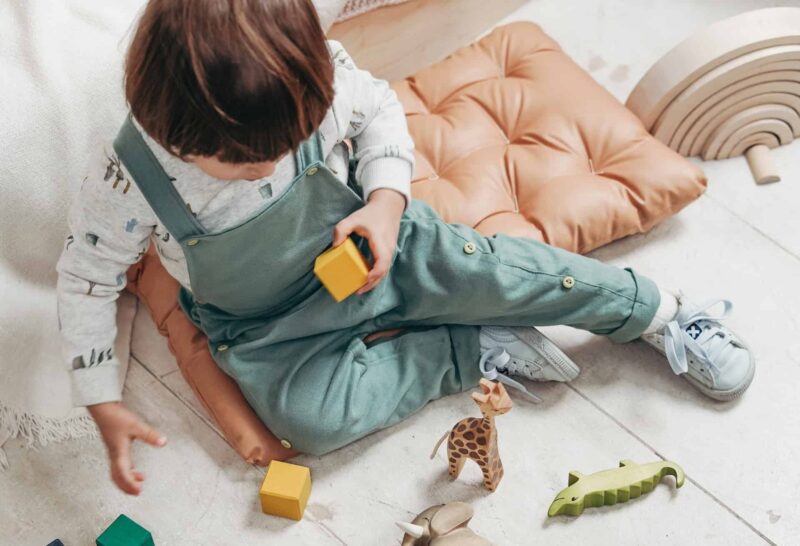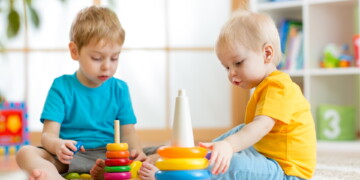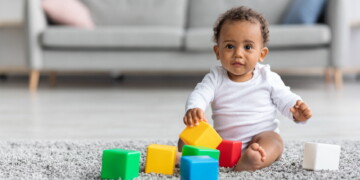Key Notes
- They start to be more playful
- There is a boost in their emotional development
- They start to communicate in a better way
A child could indicate an item or speak some words, to which parents react.
However, a toddler at 15-month-olds comprehends more than they could ever express, this can often cause irritability, frustration, and outbursts especially if a kid feels like they are misunderstood or when they’re unable to get what they want.
Meltdowns are a natural and expected aspect of a toddler’s growth. Parents can sidestep angry tantrums by diverting their child using an intriguing toy or activity, and by maintaining their calm once the meltdown starts to occur.
Physicians employ milestones as a means of determining whether or not a youngster is growing normally. Because there is a large variety as to what is generally accepted, many kids develop abilities sooner or later than others. Toddlers who have a preterm birth can miss out on various developmental stages and milestones.
Growth Of Toddlers at 13-15 Months – What’s Going On
Play and Performance
The toddler can take a bit of time and effort trying to figure out how various objects do what and what exactly they could make of it. For instance, if the kid constructs and demolishes modest stacks of blocks, he or she should also be able to stack up to three or maybe more blocks.
Children can also produce markings or scrawl on paper with crayons, or even scribble with a pen or coloured pencils, as well as dump pegs in a basket or from one to the other.
Toddlers like discovering new things. But if you are present as your kid investigates and explores all these things, he or she will be a lot more comfortable, and they will be secure enough to do new things for the first time.
Emotions and Feelings
Emotional development is a critical stage for the toddler’s psychosocial development as well as the emotional development. You may now observe your youngster interacting with some other kids.
Children could imitate activities if they receive a response from your end, for example, if you become upset with your child quickly and begin using phrases such as no, they can start picking up on it and begin following your example, sometimes even repeating acts.
Your youngster may exhibit symptoms of separating anxiety on a regular basis and might not be ready to let go of the attachment yet, throwing tantrums when you cannot give them your undivided attention for instance.
However, the youngster begins to display empathy as well and, they may appear upset or sad and may even react if they observe anyone else sobbing or tearing up or showing any signs of distress.
Furthermore, hugs and kisses will be given by the child to his or her caretakers in this stage. The toddler will also act with greater independence.
Communication and Language
Your toddler’s linguistic growth advances mainly around this stage of their life. Actual words begin to appear in the toddler’s chattering. They may also identify common items, such as a ball however they will not be able to use all words properly at this age.
They can still groan, nod, and gesture to communicate their desires. They could also gain attention from their parents by pulling and pointing to convey whatever they wish to have.
If their words aren’t getting mom and dad’s attention toddlers can even say 3–5 words in addition to “mama” and “dada,” they learn a few new ones that they also use correctly.
They also begin to mix sounds and different words in trends similar to that of speech and also point out a part of the body if they are asked simple questions like where your ears are.
Developed Movement

The youngster will also have learned to stand, take steps, walk and could also be able to run stiffly. They could sometimes even bend down or squat to reach for an object that they dropped while also maintaining their balance or sip from their water cup.
Active play assists your kid in developing muscular strength for the more complicated motions such as standing upright, walking, running, and jumping.
Throughout these stages, your kid may be capable of standing up with no assistance provided by you or your furnishings and may start walking by themselves. As your kid gains confidence in standing, he or she may attempt to climb steps or perhaps even equipment.
If your youngster isn’t walking on their own yet, don’t be too concerned. Some youngsters do not walk with zero assistance until they are 15-18 months old.
How Can Parents Aid This Development?
You can start by giving your toddler hugs and kisses, cuddles, and snuggles, compassion and showing appreciation are beneficial to his or her emotional growth.
However, keep in mind that the toddler has just started to discover how feelings function as well as how to interact with everyone else. Finding the time for indoor and outdoor both playing is vital for a toddler to learn in what way things operate.
Open-ended items, such as building blocks, peg, balls, frozen yogurt tubs, and cartons, are ideal for playing. The toddler certainly still enjoys playing games alongside you, such as pat-a-cake or hide and seek.
You should talk to your toddler and help them in identifying and discussing of daily objects such as parts of the body, toys, and household items such as spoons which enables your child’s linguistic ability to improve.
Through understanding and responding, you may help your child develop his or her verbal and nonverbal communication abilities. You can mimic what your child says, for example, if your youngster says “mama,” you might respond, “yeah, i am your mom.” this fosters communication while also making your youngster feel important and appreciated.
Reading with your toddler helps too. By reading together, telling tales, singing hymns, and repeating rhymes, you may stimulate the toddler’s speech and creativity.
You can promote basic abilities like wearing a cap. These abilities need both little and large muscular actions, and also your toddler’s ability to think critically.
You should also motivate your kid to move as it helps them acquire muscle development, that is necessary for complicated actions such as walking. Keeping your house secure allows the energetic toddler to go around without fear of being injured.
Parenting Your Toddler at This Age
Part of being a parent is knowing that it’s ok to be certain of things you understand but it is also knowing when to seek clarification or assistance on things that you are not quite as well-versed in.
Sometimes while taking care of toddlers, you may neglect yourself or not take care of your health properly. However, taking care of oneself bodily, intellectually, and emotionally is necessary for them and it aids the toddler’s growth and development.
You may feel stress. It’s fine to take breaks till you seem more at ease. You can put your kid in a secure location, such as a crib, or ask somebody to hold the toddler while you calm yourself down. Then try moving to a different room and take slow breaths or contact family or friends for moral support.
















